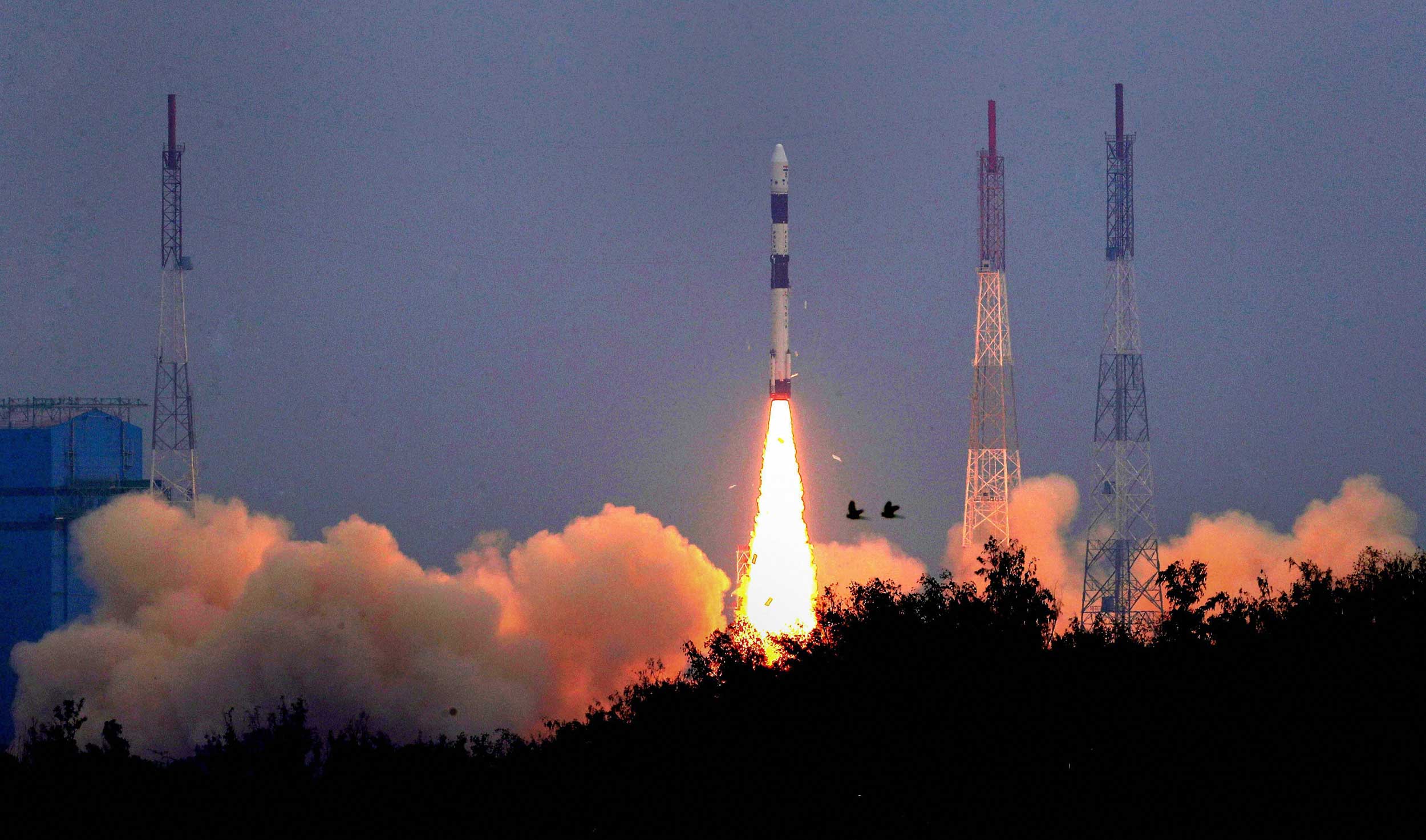India’s space agency on Thursday launched a 380kg, home-grown Earth-observations satellite for crop, forest and environment management applications.
Along with it were launched 30 smaller satellites for foreign customers, all riding the Indian Space Research Organisation’s workhorse rocket, the Polar Satellite Launch Vehicle.
The rocket injected Isro’s Hyper-Spectral Imaging Satellite (HysIS) into a 645km polar orbit about 17 minutes after the lift-off from the Sriharikota island spaceport on the east coast.
It then released its other passengers one by one, after twice restarting its fourth-stage engines.
These passengers included a micro-satellite and 29 nano-satellites. The 30 satellites together weighed 261.5kg.
The HysIS will observe the Earth through multiple wavelengths of the electromagnetic spectrum — from the visible, near-infrared and short-wave infrared regions.
Data from the HysIS are intended for use in agriculture, forestry, geological studies and the management of inland waters and coastal zones.
“Our customers are happy their satellites (have been) precisely delivered into orbit,” Isro chairperson K. Sivan said.
Mission director R. Hutton said the launch worked with “clockwork precision” and that Thursday’s flight had again demonstrated the PSLV’s ability to launch multiple satellites into different orbits. The PSLV has so far launched 53 Indian satellites and 269 satellites for international customers.
Isro had entered the commercial satellite launch market in 1999 with a PSLV launch that had ferried a German and a South Korean satellite into space. Satellites from Australia, Columbia, Malaysia and Spain flew on a PSLV for the first time on Thursday.











